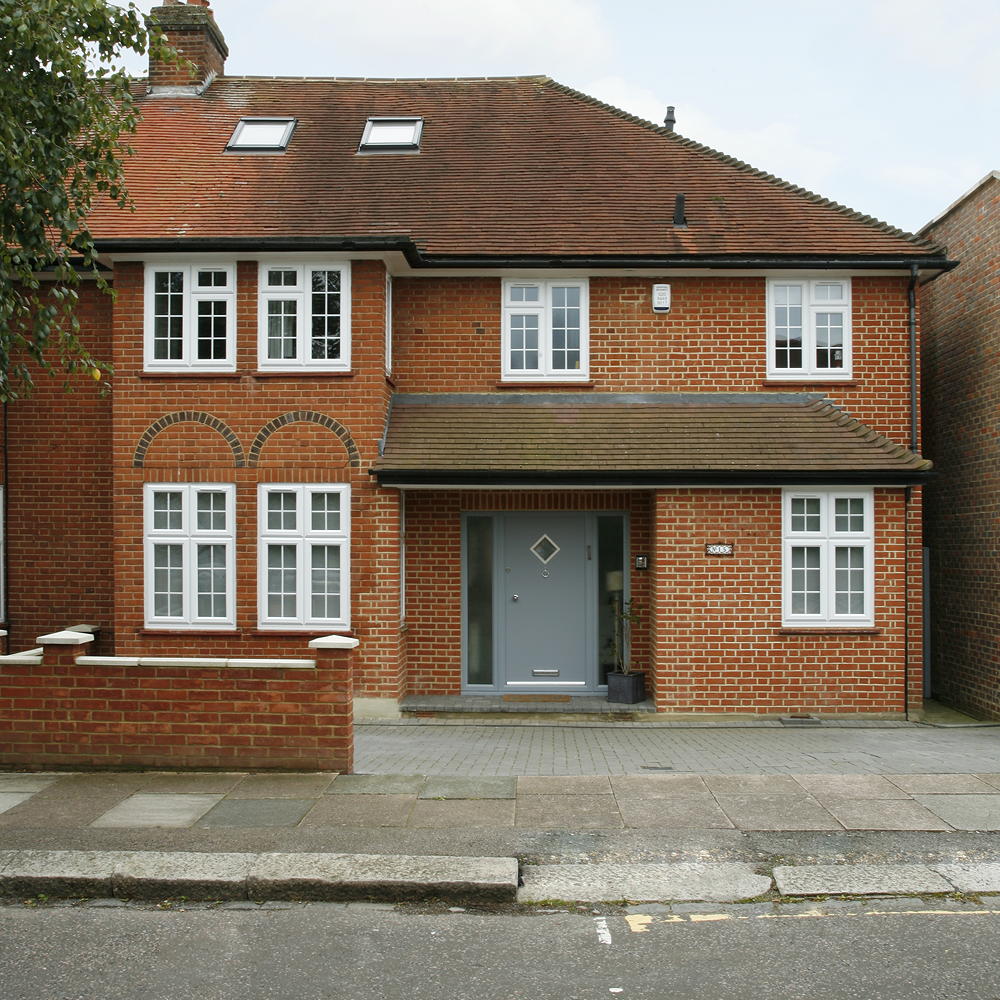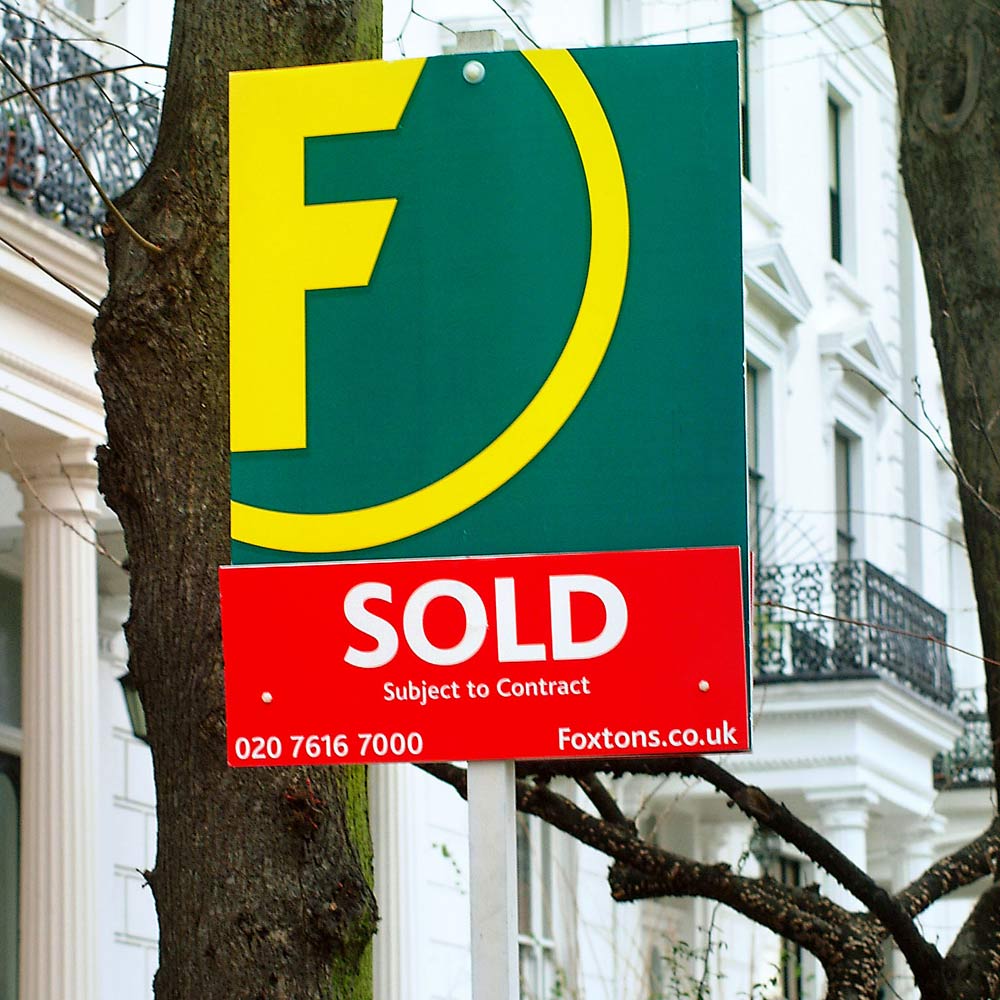A mortgage in principle explained
A mortgage in principle is the first step towards securing a homeowner's loan – find out what that means and how to get one
As soon as you decide to start looking for a new home you should apply for a 'mortgage in principle'. This is an estimate of how much a bank or building society is prepared to lend you. You might also hear it called an 'agreement in principle' or a 'decision in principle'.
It comes in the form of a certificate and once you’ve got yours you can start house hunting with confidence. As we are currently seeing the best mortgage rates ever, now couldn't be a better time to apply for a mortgage in principle.

Mortgages in principle explained
Importantly, this is not a binding commitment from a lender to offer you a mortgage. It provides a good indication of what you can borrow – and shows others in the housing market that you’re serious about buying a house.
Why should I get a mortgage in principle?
A mortgage in principle will help you to set a budget so that you can be realistic about which properties are in your price range. If you were hoping to buy a more expensive property than the mortgage will enable, you know you have to save a bigger deposit.
Also, a mortgage in principle agreement from a lender shows estate agents and sellers that you’re a serious buyer. You’ve checked out how much you can borrow and a bank or building society is prepared to lend to you. Some sellers will refuse to take their property off the market unless the buyer making an offer can show they have one.
How do I get a mortgage in principle?
A mortgage lender or a mortgage broker can produce a mortgage in principle for you. A mortgage broker will be able to search lots of different lenders for the best mortgage rates and the most generous loan amount for your circumstances. Some banks and building societies will offer higher loan amounts for certain professions or for first-time buyer mortgages, for example.
You’ll be asked some basic questions such as how much you earn, how much you spend on household bills and everyday living costs, and what debts you have. It can take as little as 15 minutes to complete the application; some lenders return a decision in minutes, others within 24 hours.
Get the Ideal Home Newsletter
Sign up to our newsletter for style and decor inspiration, house makeovers, project advice and more.
You won’t be asked to provide proof of your income or outgoings at this point. It’s important to be truthful; otherwise you may be offered a lower loan amount when you come to make a full application.

Does a mortgage in principle cost anything?
Not usually. If you’re using a mortgage broker they may charge you a fee for providing mortgage advice if you decide to use them to arrange your mortgage.
Will I be credit checked?
Yes. The lender will look at your credit report before deciding to offer you a mortgage and how much.
Ask your broker or lender if it is a hard or soft credit search. A hard credit search means it will show up on your credit report, called a footprint. Other lenders will be able to see you have applied for a mortgage in principle. Multiple searches will not damage your credit score.
However, if a lender checks your credit report and sees lots of searches from other lenders in a short period it may be concerned that you’re a credit risk and decide not to lend to you. Soft searches don’t show on your credit report.
Can I be rejected for a mortgage in principle?
Yes. You’ll either be accepted, rejected or referred. If you’re referred, it means your application has been passed to an underwriter, who will take a closer look at your circumstances before making a decision.
If you’ve been rejected, it will affect your credit rating. You may be declined a mortgage in principle because you have had credit issues, income is too low or your outgoings or debts are too high.
How long does a mortgage in principle last?
A mortgage in principle can last for between 60 to 90 days. If it expires you’ll need to apply again, which could mean a further credit search.

What is the next stage in the mortgage loan process?
Once you have viewed real homes and found a house, it is time to start a full mortgage application.
If you’re using a mortgage broker, it will do that for you. If you’re dealing with a lender directly you’ll need to contact them to tell them you’ve made an offer on a house and you want to proceed with your application.
You’ll be asked to provide proof of your earnings and outgoings, along with the source of your deposit and your identification, so the lender can carry out a thorough assessment of your circumstances.
It’s a good idea to start getting your paperwork ready while you search for a house. You usually need to give the lender your latest three months’ payslips or latest two years’ accounts if you’re self-employed. You’ll need to show your most recent three months’ bank statements too.
The quicker you supply your paperwork, the faster your lender can approve your mortgage so you can concentrate on moving in to your new dream home.
Samantha Partington is a personal finance journalist specialising in mortgages and the property market.
Over the past nine years, Samantha has worked for the Daily Mail, trade website Mortgage Solutions and business title Property Week. She regularly writes for national money pages including Money Mail and Sun Money and supports prop tech firms with content writing.
-
 Wood drenching is the calming new twist on the colour drenching trend – here’s how to make the look work in your home
Wood drenching is the calming new twist on the colour drenching trend – here’s how to make the look work in your homeIt’s easier than ever to embrace natural materials
By Maddie Balcombe
-
 Aldi is launching a £200 day bed with four different features - its sleek design is suited to the whole family
Aldi is launching a £200 day bed with four different features - its sleek design is suited to the whole familyYou don't want to miss out on this Specialbuy
By Kezia Reynolds
-
 How to set up a drip watering system that saves water and a lot of effort
How to set up a drip watering system that saves water and a lot of effortKeep your plants hydrated (and your water bill down) with this clever garden watering solution
By Natalie Osborn
-
 You can claim back over £300 a year from HMRC if you work from home - here’s how to check if you’re eligible
You can claim back over £300 a year from HMRC if you work from home - here’s how to check if you’re eligibleWhen it comes to saving, every little helps
By Kezia Reynolds
-
 Experts have revealed the best day to renew your home insurance policy - you’ll want to do it sooner rather than later
Experts have revealed the best day to renew your home insurance policy - you’ll want to do it sooner rather than laterDon't leave this task at the bottom of your to do list
By Kezia Reynolds
-
 Is a variable rate mortgage ever a good idea? Experts weigh in
Is a variable rate mortgage ever a good idea? Experts weigh inOur money expert explains what a variable rate mortgage is, who they can be good for, and the pros and cons of this kind of mortgage
By Samantha Partington
-
 I’m a first-time buyer, what are my chances of getting a mortgage right now?
I’m a first-time buyer, what are my chances of getting a mortgage right now?And what you can do to increase your odds
By Rachel Wait
-
 Should you ever pay above the asking price for a home?
Should you ever pay above the asking price for a home?Our money expert explains whether you should ever pay over the asking price for a home, especially if house prices fall as predicted
By Samantha Partington
-
 Should I fix my mortgage and how long should I fix for?
Should I fix my mortgage and how long should I fix for?We speak to the experts to find out whether you should fix your mortgage and how long for as well as the impact further interest changes could have on your decision
By Samantha Partington
-
 We put your mortgage questions to two leading experts, here's what they said
We put your mortgage questions to two leading experts, here's what they saidAs mortgage panic continues, we've answered the most common questions - from when mortgage rates will come down, to when you actually have to pay stamp duty
By Samantha Partington
-
 'My mortgage is set to skyrocket - what should I do?' 5 potential solutions from a money expert
'My mortgage is set to skyrocket - what should I do?' 5 potential solutions from a money expertIf you're facing higher mortgage costs, our money expert explains various courses of action you could take to ease the pressure
By Samantha Partington